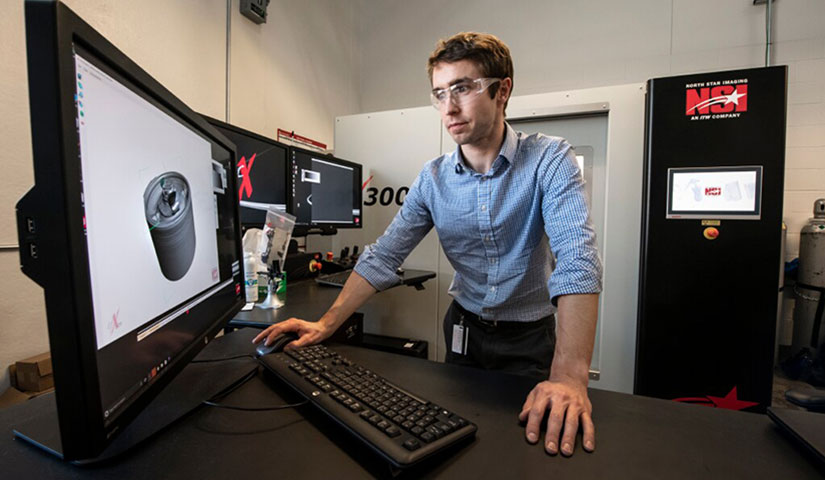NREL Receives $3.4M in Federal Funding To Evaluate Safety of Next-Generation Electric Vehicle Batteries

By the time an electric car battery gets to market, it has been subjected to exhaustive safety testing: How does it perform in severe cold? What about punishing heat? Will it still work safely after an accident? Performed by experts under strict operating conditions, these tests ensure that a battery's limitations are deeply understood, so car manufacturers can design operating systems that keep passengers safe.
Now, National Renewable Energy Laboratory (NREL) researchers have been awarded $3.4 million in federal funding to lead a team consisting of NREL, Exponent, and the University of Texas at Austin researchers in performing the same rigorous safety tests on cutting-edge, next-generation electric vehicle (EV) batteries. Their ultimate goal is to de-risk up-and-coming battery technologies to support vehicle electrification across the United States.
NREL has been awarded funds for the risk-assessment initiative from the U.S. Department of Energy Advanced Research Projects Agency-Energy (ARPA-E), which supports high-potential, high-impact technologies that are not yet ready for private-sector investment. The funding for the project comes from the ARPA-E Electric Vehicles for American Low-carbon Living (EVs4ALL) initiative, which called for proposals in three categories: Category 1 projects to develop extreme fast-charging batteries, Category 2 projects to develop batteries with extremely high energy density, and Category 3 proposals to evaluate the safety of these novel technologies.
Donal Finegan, an energy storage researcher at NREL, will serve as the project lead for NREL's Category 3 award. Over the next two to three years, Finegan's research team will partner with the companies and universities that earned Category 1 and 2 awards to conduct a thorough analysis of their next-generation energy storage materials, generate a detailed understanding of what might cause them to fail, and outline what happens when they do.
Finegan's work will be both trailblazing and critical. Because ARPA-E funds high-risk, early-stage work that pushes the boundaries of known science, the project's Category 1 and 2 companies will work to develop battery cells from novel materials ranging from sodium, potassium-ion, and solid-state lithium metal, as well as cobalt- and nickel-free cathodes. While this experimentation is necessary to push the boundaries of EV batteries, so is safety—and the chemistries, limitations, and failures of these materials are not yet understood.
"All batteries carry some risk of failure," Finegan said. "The key is to have a deep, thorough understanding of the battery's failure conditions so that car manufacturers can make informed decisions on the selection of batteries and thereafter design a battery system that mitigates those risks."
Finegan's research team will begin with a bottom-up approach to understand any factors that could cause a risk in using these novel batteries: toxic materials, flammability, high heat generation, or potential release of hazardous gases or particulates during failure. Then, the team will develop revised testing standards and tools to allow manufacturers to duplicate the tests in their own labs, in addition to researchers across the world, who can validate the results and use the data in their own experiments.
"By the end of the process, we aim to de-risk commercialization of the batteries because their safety has been so deeply assessed," Finegan said.
While the project will be intensive, NREL has a long history of successfully validating this kind of experimental work, and Finegan is eager to continue the tradition.
"Fifteen years ago, NREL researchers began to model lithium-ion batteries," he said. "Their work was a major success: Those models are now widely used by industry partners, and they all came from experimental work like this. We'd like to build on that success for novel, next-generation batteries. This project could help NREL set the foundation for many future research projects on next-generation battery safety."
That foundation will be set soon. Within the next two years, Finegan's team plans to deliver a clear, actionable guide that enables manufacturers to develop safe systems—ultimately reshaping the EVs of the future with fast-charging, energy-dense, and critical-materials-free battery designs.
Learn more about NREL's energy storage and sustainable transportation research. And sign up for NREL's quarterly transportation and mobility research newsletter, Sustainable Mobility Matters, to stay current on the latest news.
Last Updated May 28, 2025
